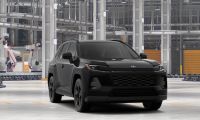Called “Audi Urban Intelligent Assist,” the aim of the program is to take connected car, driver assistance and infrastructure electronics to the next level of providing detailed information so motorists have a better sense of the driving conditions surrounding them. The universities involved in the Audi Urban Intelligent Assist initiative are the University of Southern California, University of California at Berkeley, University of California at San Diego and the University of Michigan Transportation Research Institute (UMTRI).
Audi says there is a pressing need to focus on driving in urban centers because there populations have exploded recently. According to Audi, in the U.S., urban population has exploded to about 85 percent of the country’s total. This translates into expanding but denser cities and megacities.
Audi signed an agreement with the four research universities – each with expertise to pursue the following topics:
- Audi Urban Crash Analysis - UMTRI will conduct a study using extensive accident databases with the aim of finding “accident hot spots” in urban centers. The idea is to understand what scenarios in urban driving environments pose the higher threats and difficulties for drivers, leading to a higher number of accidents.
- Audi Urban Diagnostic - UC Berkeley PATH will be focused on getting and aggregating historic and real time urban data from multiple sources, to support the overall goal of the Urban Intelligent Assist initiative. This data will include local vehicle and pedestrian information from onboard vehicle sensors for local awareness, as well as aggregated traffic and traffic controlling information (i.e. traffic lights, etc.), parking availability, urban events (sports events, concerts, accidents, etc.) among other, in order to get an up to the minute snapshot of the city, but also to make predictions on what the city environment is going to look like in the near future (15 to 60 minutes from now)
- Audi Driver Diagnostics - UC San Diego will focus on understanding the driver and his/her preferences, to tailor the urban driving experience to fit the personal needs of each Audi customer. The major research questions are to determine what aspects of urban mobility distract and stress individual drivers, and what kind of metrics can be used for those, in order to support and assist each user appropriately to make urban commute more enjoyable, efficient, safer, and smarter.
- Audi Urban Assistance - USC, in collaboration with UC San Diego, and UC Berkeley PATH, will deal with finding the correct way to bring relevant urban information to the driver, minimizing distraction, information over load, and stress. The research focus is on determining critical information in urban situations, such as vehicle and pedestrian detection for intersection safety, available parking spaces near a destination, or the governing traffic rules at the time of arrival (no parking, car pool lanes, no left turn, etc.). The systems would then find the correct medium to convey this information to the driver.
- Audi Urban Navigation - USC will use urban information collected from multiple on and off board sources to predict how the city flows through the day, and use this in combination to the driver diagnostic information to generate the most comfortable and efficient route for each driver, and to give recommendations about route planning and execution tailor made to each user to make each trip a smart stress-free one.
Related Audi News:
Self Driving Car from Audi Among News at CES 2011
Audi A6 wins EyesOn Design Award
Audi Has Best Ever Sales in 2010











